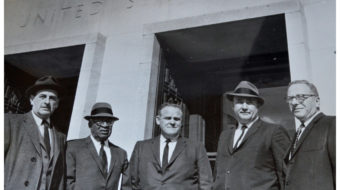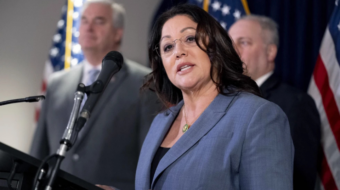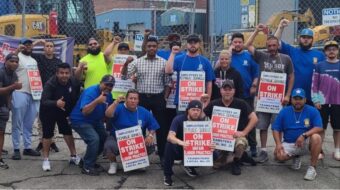PITTSBURGH – Some Blue Dog Democrats, fearful of a public option in a health care bill, have signaled that they might be willing to support a compromise measure that allows for creation of such an option once insurance companies show, under the president’s new plan, that they are continuing to charge customers too much. They are saying the “threat” of a public option might, by itself, force insurance companies to charge less.
While the mood here about the prospects for passage of labor’s other big legislative aim – the Employee Free Choice Act (EFCA) – is overwhelmingly positive, labor leaders and others assembling for the convention of the AFL-CIO that opens Sept. 13 are expecting a compromise on the majority sign-up provision. They are optimistic, however, that the compromise will preserve the intent of the so-called “card check” provision by giving workers, not employers, the choice of whether to form a union.
The latest compromise being circulated involves, similar to the health care compromise, a trigger mechanism – this time for majority sign-up.
Under the “trigger” compromise the time that can pass between the day that union supporters have a majority of the needed signatures and the day of an election, if the company insists on one, would be drastically shortened. The law would mandate an election in days, rather than months.
The penalties to an employer for even attempting to harass or influence employees would include cancellation of the election and “triggering” of automatic union certification as a result of the majority sign-up process that had taken place.
Other aspects of the compromise include, as do all of the deals that have been floated, measures to keep companies from stalling during contract talks and stiffer penalties for any violations of labor law.
“I’m cautiously optimistic that the 60 votes for this compromise, enough to avoid a filibuster, now exist in the Senate,” said Harold Meyerson, a progressive journalist, writer and columnist, who spoke with labor reporters here Sept. 10. Meyerson has met more than once with a number of the labor leaders and lawmakers involved in the talks on the EFCA.
Meyerson cautions, “Everybody agrees,” though, “that nothing will happen until the health care situation is resolved.”
Most of the labor leaders gathering here agree that chances of passage of a strong bill making it easier for workers to organize are good but they are less willing to speculate on what final form it will take.
“I believe we will get something but I can’t tell for sure what to expect out of the people responsible for writing our laws,” said Leo Gerard, president of the Steelworkers union.
When Meyerson talked with labor journalists one asked him, on another topic, what he thought about President Obama’s selection of “advisers like Tim Geithner and others who are not really progressives.”
Meyerson responded that,” we can’t forget that Roosevelt had advisers like Morgenthau who were against the New Deal and urged closing deficits rather than public works programs and Lyndon Johnson had a lot of conservative advisers. Those presidents became what they became because of the powerful mass movements that grew up and were steering events. Obama can’t do it all by himself. He too will need the movements.”










